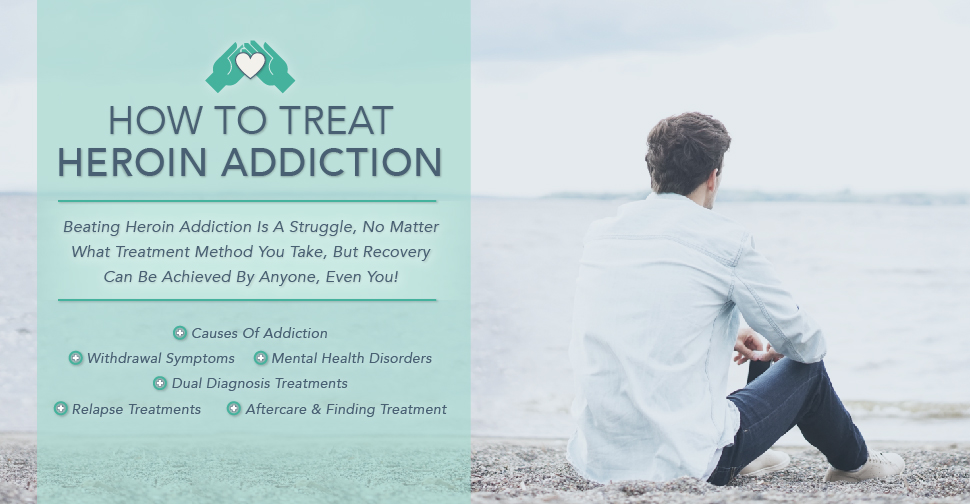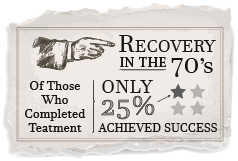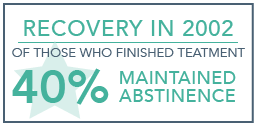
If you or someone you love is suffering from a debilitating addiction to heroin, help needs to be found as soon as possible. Trying to manage the problem by yourself is a process few can master, which is why it is so necessary to get professional treatment. There are many different methods utilized in treating heroin addiction, all of which are designed to focus on one or more aspects of addiction.
How Heroin Causes Addiction
Before discussing heroin addiction treatment, it is worth understanding how heroin use causes addiction. When heroin is used, it travels quickly through the bloodstream where it ends up in the brain. Here it is converted into morphine, another strong opiate. This morphine will then seek out the opioid receptors in the brain and stimulate them into activity.
Opioid receptors are spread throughout the brain and body to receive the important chemicals that help regulate various important aspects of the body. One of these aspects is the release of endorphins or pleasure-creating hormones. The body automatically makes this chemical, but heroin and other opiates trigger an excessive release, the kind that can’t be created naturally.
As a result, the body and the mind experiences an intensive sense of euphoria that is very pleasurable. This causes some to continue using heroin to achieve the same effect. Over time, the brain and body become dependent on heroin to activate these opioid receptors, in turn shutting down its own production of endorphins. As a result, those with a heroin addiction must use heroin to feel pleasure and to avoid the negative side effects that occur during withdrawal.
This intense effect helps explain why heroin is so addictive. It also helps to explain why heroin treatment is such an extensive process. It isn’t something that can be done in just a few days or weeks, but requires a month or more of serious treatment and a lifetime of constant diligence.
Withdrawal Symptoms Must Be Treated
The first step in managing heroin addiction is to detoxify the body. This requires a medically-tapered dose of replacement medicines. The idea behind this process is to keep the body from falling into a dangerous state of withdrawal which can be life-threatening. Withdrawal symptoms of heroin include:
- Anxiety and frustration
- Severe pain
- Sleep problems
- Sweatiness and clammy skin
- Abdominal cramps and diarrhea
- Nausea and vomiting
- Goosebumps
- Hallucinations
- Seizures
Replacement agonist medicines, such as methadone, stimulate the same full-opiate effects to prevent withdrawal. Doses are then slowly decreased until the person in treatment no longer needs any medication to avoid withdrawal. At this point, the body will have gone through the full rigors of detoxification. Other medications that are commonly given for heroin withdrawal include buprenorphine, which has an effect similar to methadone, but with less potential for addiction, due to the fact it is a partial agonist and does not impact the opioid receptors as heavily as a full agonist.
Other treatments use medicines that aren’t agonists, but antagonists. These block the action of the illicit opiate, preventing a user from getting high or experiencing a sense of euphoria. One example is naltrexone. This medicine is more typically prescribed after withdrawal is over to fight relapse and maintain sobriety, though some people report that it helps to alleviate cravings, it does not serve this purpose in everyone. These medications are paired with the mental health treatments that are crucial to promoting sobriety.
Mental Health Disorders Must Be Diagnosed
Drug addiction and mental health disorders often create a difficult scenario known as co-occurring disorders. The comorbidity between these two problems are common for a variety of reasons. Often, people are compelled to use drugs due to anxiety or depression. This is common with heroin use, as it slows the mind and decreases emotional potency.

Those with unbalanced personalities, such as those affected by bipolar disorder or borderline personality disorder, may use heroin for thrill seeking purposes. These choices may also be paired with the urge to self-medicate. Even more severe mental health problems, such as schizophrenia, can lead to heroin use. Some of those who suffer from schizophrenia and heroin abuse claim that drug use calms the negative mental chaos of schizophrenia.
In some cases, research suggests that it may be possible for heroin addiction to lead to the development of these conditions, rather than the reverse. Whatever the connection between the two concerns, it is important to treat them both at the same time using dual diagnosis recovery methods.
Dual Diagnosis Treatments Are Important
Dual diagnosis treatment is the process of treating co-occurring disorders at the same time in order to decrease the negative impact each has on the other. This is a method that has been particularly important for heroin and other opiate substances. For example, one study of 189 opioid-dependent people found that co-occurring diagnoses were common in 59 percent of all cases.
Dual diagnosis treatments take the form of psychological counseling and addiction treatment methods. For example, if a person has borderline personality disorder, dialectical behavior therapy will help calm the symptoms of this disease and decrease its impact on the use of heroin.
While this is going on, drug education courses, relaxation tips, and distraction therapy methods will be utilized to help manage heroin addiction in a constructive way. Physical health improvements are also implemented during this step, including managing any pain or malnutrition that may have occurred as a result of addiction. The idea is to help promote full-body and mind recovery.
These methods will take up the majority of your treatment time. During these therapy sessions, you will learn how to be a stronger person who doesn’t need heroin to be healthy and happy. However, heroin is a powerful drug that leads to a lot of painful relapses for some people. Learning how to avoid this problem is heavily focused on during your heroin addiction treatment.
Relapse Treatments Must Be Undertaken
Relapse with heroin is a dangerous problem, as it may cause a person to fall back into the throes of addiction or may trigger an overdose and death. Unfortunately, various studies have found that relapse rates are high in those addicted to heroin. This was especially true in the early 70s, when one study showed that only 25 percent of those who finished treatment achieved success.

However, a modern study in 2002 found that 40 percent of those who finished rehabilitation maintained their abstinence, while those who did relapse did so quickly after leaving treatment and usually sought treatment after relapse. While the 15 percent sobriety increase is very promising (as treatment methods have improved) the conclusion reached by the study was this: “Treatment services should develop further and strengthen relapse prevention and relapse coping skills among drug misusers.”

To that end, rehabilitation groups are now focusing heavily on providing services that help manage the dangers of relapse. For example, those in recovery are taught to identify their triggers and to find ways to negate them. Sobriety groups like Narcotics Anonymous also help those in recovery to create a positive sobriety group. Many of these treatments are typically utilized in the aftercare period of recovery.
Aftercare Helps Prolong Treatment Effectiveness
Managing a heroin addiction doesn’t stop when treatment ends. It requires mastering a variety of aftercare techniques in order to avoid relapse. For example, the relapse avoidance techniques mentioned above will be used to avoid falling back into negative patterns of behavior. Other aftercare recovery methods, like temporary residence in a sober house or job placement, help you to integrate back into the world with less of a struggle.
Aftercare is just as essential to recovery success as any treatment program. For example, one study of those addicted to drugs in prison found that those who utilized aftercare treatment did significantly better than those who received none. That’s why it’s so crucial to focus on aftercare after treatment.
Now that you better understand the ways that heroin addiction is treated, you can start looking for a recovery center that can help you. There are thousands of such groups around the nation who are willing to help those who are interested in eliminating heroin addiction and regaining a sober lifestyle.
Finding A Heroin Treatment Center Near You
Getting treatment for heroin addiction requires finding a center that offers this kind of treatment. Most drug rehab centers are staffed with people who understand this concern and who have years of experiencing treating it. They will work you through the process and help you to get clean.
Time is of the essence when treating heroin addiction, as studies have shown that people who get treatment sooner have lower relapse rates. It has also been shown that those who stay in recovery longer (such as 90 days, as opposed to 30) are more likely to remain clean. Breaking that year mark is an important milestone in recovery, but it’s one that requires a lot of work.
So try to look for a center that offers long-term residential treatment near you. However, if you are worried about relapsing or of being influenced negatively by those around you, recovery in a center in another state may be a good idea.
Once you’ve decided on whether near or far away centers are right for your needs, start contacting ones that you think you’d like to attend. Many offer unique treatment options, such as adventure therapy and yoga techniques, that help manage heroin addiction in specialized ways.
Getting Help As Soon As Possible
 The severity of heroin addiction makes it a problem that can’t be ignored. Treat it by checking into a drug rehabilitation center. If you or someone you know is suffering from heroin addiction and needs help on the path to sobriety, please contact us at DrugRehab.org today.
The severity of heroin addiction makes it a problem that can’t be ignored. Treat it by checking into a drug rehabilitation center. If you or someone you know is suffering from heroin addiction and needs help on the path to sobriety, please contact us at DrugRehab.org today.
Sources
National Institute On Drug Abuse – Naltrexone
National Center For Biotechnology Information – Impact of substance dependence and dual diagnosis on the quality of life of heroin users seeking treatment
American Psychology Association – Relapse rates after treatment for heroin addiction
Society For The Study Of Addiction – Factors associated with abstinence, lapse or relapse to heroin use after residential treatment: protective effect of coping responses
The Prison Journal – Three-Year Outcomes of Therapeutic Community Treatment for Drug-Involved Offenders in Delaware: From Prison to Work Release to Aftercare

